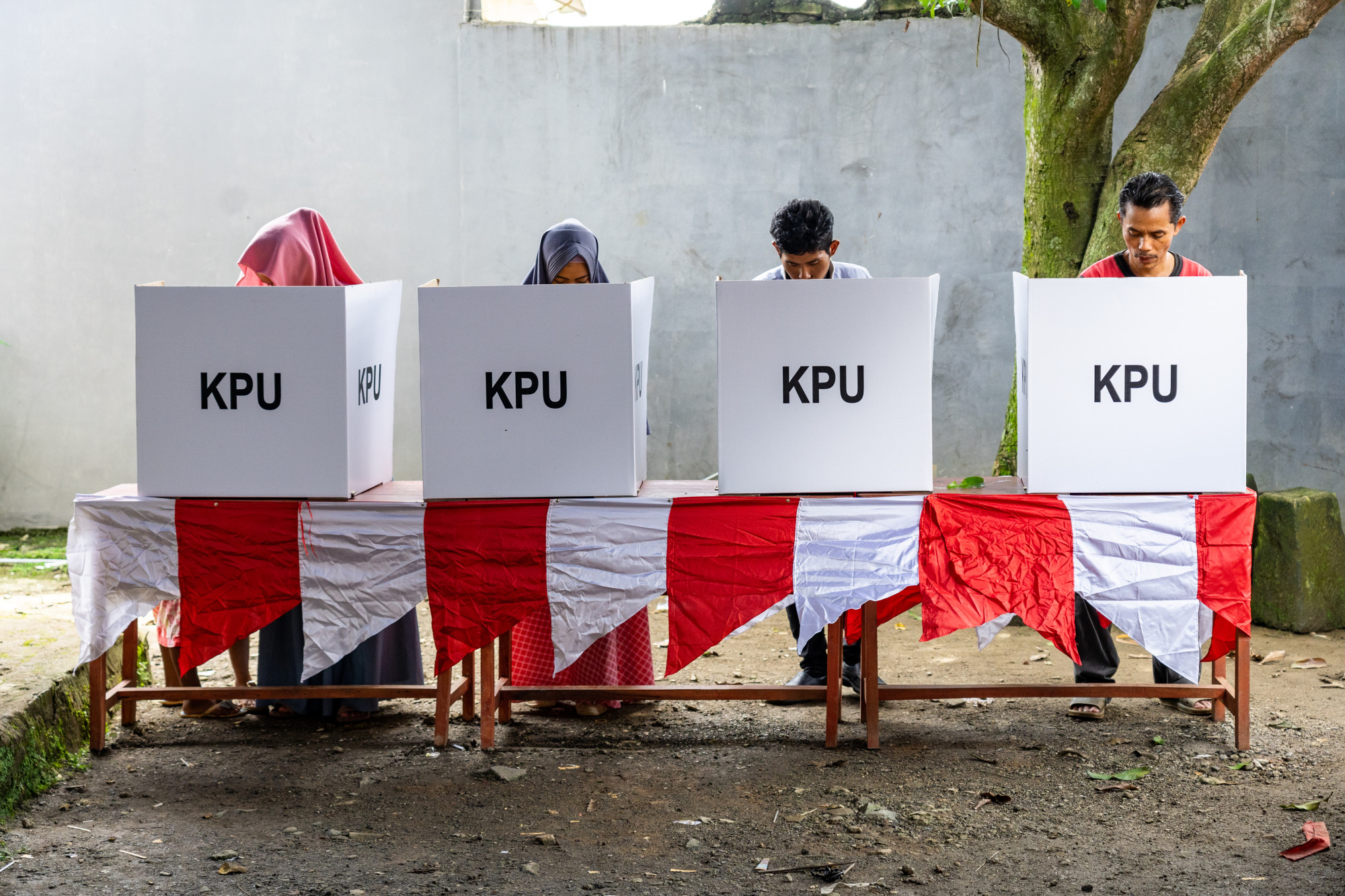
Indonesia election: court rejects challenge to change electoral system that could be ‘setback to democracy’
- Politicians who filed the lawsuit had sought to restore Indonesia’s electoral system to a closed system rather than the current open system
- There are fears that a return to the closed electoral system would be a setback for Indonesia, the world’s third largest democracy
Indonesia’s constitutional court has struck down a legal challenge to change the country’s electoral system, just eight months before the country’s legislative and presidential elections on February 14 next year.
A closed ballot list system means that voters can only choose parties and cannot choose local candidates directly, with the party then deciding the winning candidate internally.
Indonesia used a closed ballot list system until it was scrapped in 2008 in favour of the current open list proportional voting system, which means that voters can cast ballots for either an individual candidate or a party.
“What was quite extraordinary was the extent of commentary regarding what the court sees as the relative merits or weakness of the open and closed electoral systems which was far closer to political analysis than any legal assessment of constitutionality,” Ian Wilson, a lecturer of politics and security studies at Murdoch University in Perth, told This Week in Asia.
In the panel’s judgment, which took around four hours to read, the panel of eight judges, only one of whom dissented, said that they “rejected the legal challenge in its entirety” and added that “the choice of any electoral system has the same potential for the practice of money politics”.
The panel said that the closed system was less transparent than the open system and limited public participation in the electoral process, while also being more vulnerable to nepotism.

Part of the legal challenge to the constitutional court had centred on the argument that the open list system can lead to corruption by local candidates who may try to buy votes.
There had been fears that a return to the closed system would have been a setback for Indonesia, the world’s third largest democracy, particularly in democratic progress made in electoral politics in recent years and in delaying the coming presidential election.
The legal challenge had received widespread condemnation in Indonesian political circles and, in January, eight of the nine political parties under the umbrella of the coalition government said that they did not support the closed list ballot system. Airlangga Hartarto, head of the Golkar party, said that the closed list system would be “a setback to democracy”.
Murdoch University’s Wilson said that “the decision, while largely expected, is important in so far as it has shut down a constitutional avenue for further consolidation of the power of political parties over candidate selection.
“It is hard to disentangle this case from recent controversies over the extent of the role and influence of political party leaders, such as Megawati Soekarnoputri [head of PDI-P], and where elected representatives’ loyalty should primarily lie: with their constituents or with their party,” he added.

He added that, despite this decision, political challenges to open list systems, and the integrity of electoral processes more broadly, will continue in Indonesia and that this latest legal challenge needed to be put within a context in which there are significant pressures to reduce popular participation in elections.
“This ranges from political elites arguing for a downsizing of the scale of regional elections and a return to parliamentary appointments of positions such as governor through to campaigns by village heads to extend their elected terms from six to nine years,” he said.
Indonesia has long had a history of cronyism and nepotism within its political and electoral systems, and money politics and vote-buying have remained an issue, even with more transparent and open elections in recent years.
In 2004, Susilo Bambang Yudhoyono became the first Indonesian president to be directly elected by the public, with previous presidents removed and chosen by the People’s Consultative Assembly.
Titi Anggraini, an advisory board member of the Association for Election and Democracy and a constitutional law lecturer at Faculty of Law at Universitas Indonesia, told This Week in Asia that she was not surprised by the Constitutional Court’s decision, but that there needed to be lessons learned across Indonesian electoral politics following the verdict.
“One thing that must be seriously followed up, especially by political parties, is how urgent it is for political parties to improve and implement internal party democracy, especially the creation of party cadres and anti-corruption political practices,” she said.
Anggraini said that a serious commitment on the part of law enforcement was required on the practice of money politics and political corruption, and that political parties needed to monitor their cadres more closely to root out corrupt practices.
“The electoral system is downstream, upstream is the quality and democratic commitment of political parties,” Anggraini said.
“As long as the political parties do not improve their practices, whatever the choice of the electoral system, there will be negative impacts,” she said.

